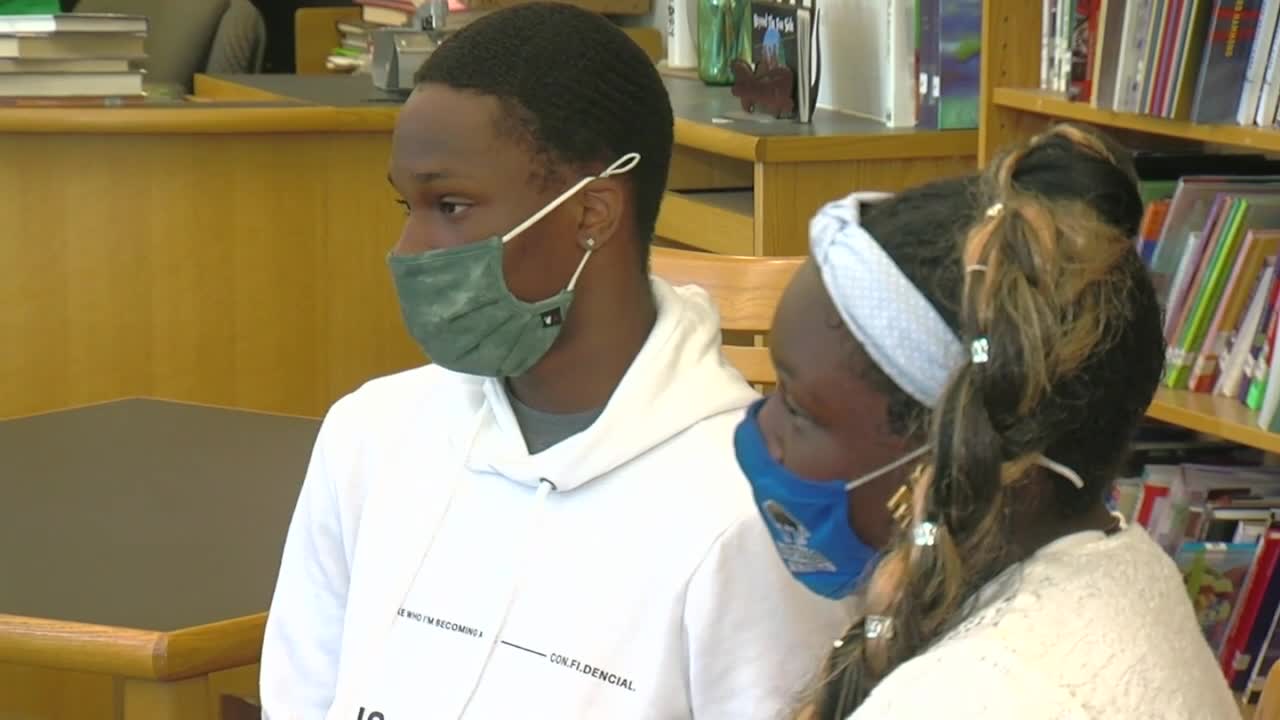BUFFALO, NY (WKBW) — Keeping our youth mentally well is a challenge and in the Black and Brown communities, students face many challenges.
In the aftermath of George Floyd’s death, anxiety and depression among Africans America’s spiked to the highest rates than any other racial or ethnic group.
The U.S. Census Bureau says 41-percent of those surveyed say they have shown signs of a least one of those symptoms.
It’s been particularly hard for children and teens. Burgard High School in Buffalo is working to tackle the issue with a focus on race based stress.

“You could get depressed to the point where you don't even want to come to school or do your work — just put your head down,” explained Heaven Walker.
Freshman Heaven Walker, 14 and sophomore Caleb Butler, 15, attend Burgard.
They say racism and inequity does affect their mental wellness.

‘It’s not equal no more — you can't just walk outside and have the same thought process,” replied Butler.
“Like all eyes on me — everybody just staring at you to be a certain way — expect you to act some type of way,” Walker responded.
Black and Brown children forced to navigate around racial tensions and for some, trauma in their home lives is hurting their mental health.
“I always say we cry different in the hood,” declared Arlene Adams.
Adams is the project administrator for the school’s mental health program called Project Aware.
Adams says for many urban students, trauma is driving student mental illness.

“Our students tears look different. They might look like fists, it might look like bullets, but their tears are still tears nevertheless — just the same,” Adams reflected. “Losing people, homicides, family members going to jail — it's become so normalized that it's not recognized as trauma — when in fact it is."
“Would say you that that racial tension and what these students, children witness in this country, has raised their anxiety levels here in Buffalo?” questioned Buckley.

“Absolutely,” answered Adams. “Between George Floyd, between all the racial tensions, between the pandemic itself — it’s just be a lot for students and families. It definitely has raised conscious and it's raised the need. We've seen a lot more suicide ideations because of this, so definitely.”
Karl Shallowhorn, a mental health expert here in Buffalo, tells us living in an environment with risks and violence will cause mental illness in youth.
“When one is living in an environment where there are risks, in terms of just violence. It definitely impacts a person in a way and when that happens to a young person — it basically alters their brain chemistry,” Shallowhorn responded.

"How would you say we are doing in Buffalo in tackling this problem?” asked Buckley.
“I think we're getting there. We have a ways to go, but I think we're certainly further off than we've been, but we can't forget about the next generation,” said Shallowhorn.
But thanks to a grant, Burgard has implemented a mental wellness program.
Wednesday, they presented a special Zoom event featuring Dr. Broderick Sawyer, a specialist in race-based trauma.
“I want us to recognize their pain,” noted Adam

Burgard is creating this space as a mindfulness room and students say they're glad mental health is being discussed.
“Are you glad there are conversations about it?” Buckley asked. “Yes. Yeah, helps you get some stuff off your chest, then building everything up. Yeah,” replied Butler and Walker.

Important Phone Numbers
If you or someone you know may be considering suicide, the following resources are available 24/7:
- National Suicide Prevention Lifeline 1-800-273-8255
- Crisis Services (local) 716-834-3131
- Trans Lifeline 1-877-565-8860
- Trans Lifeline Canada 1-877-330-6366





